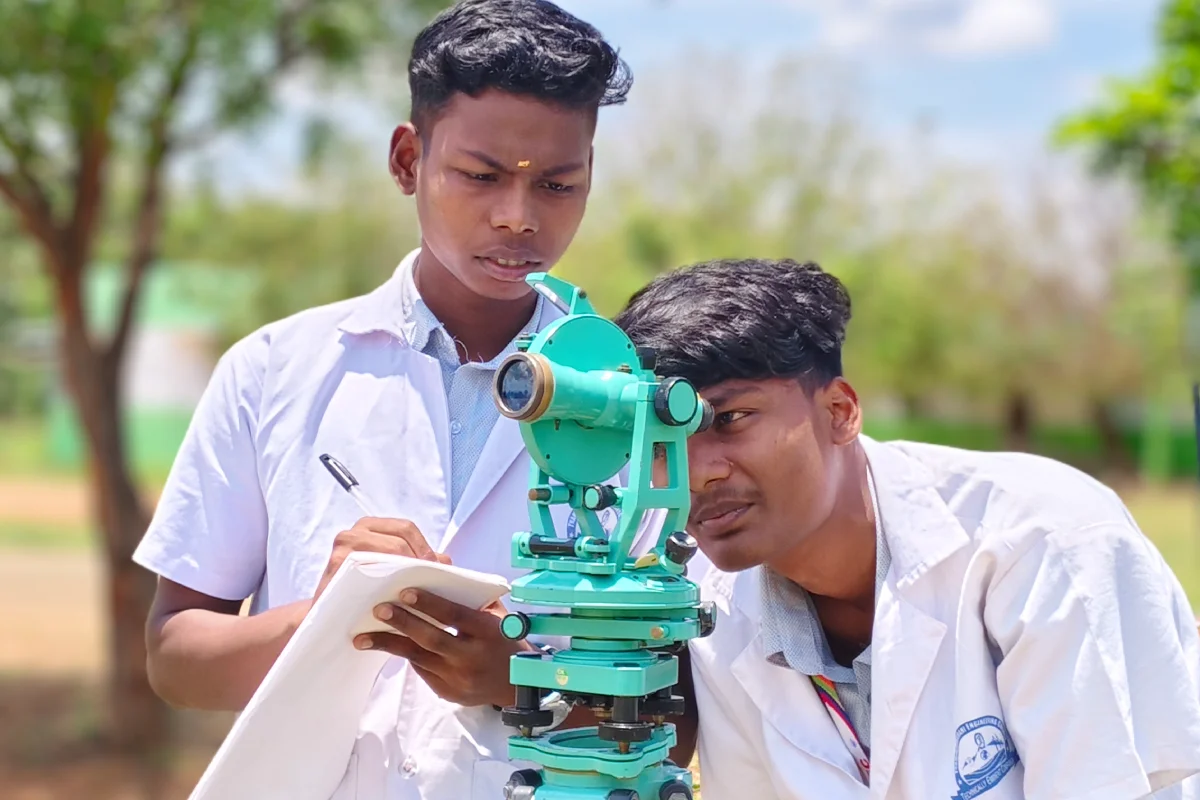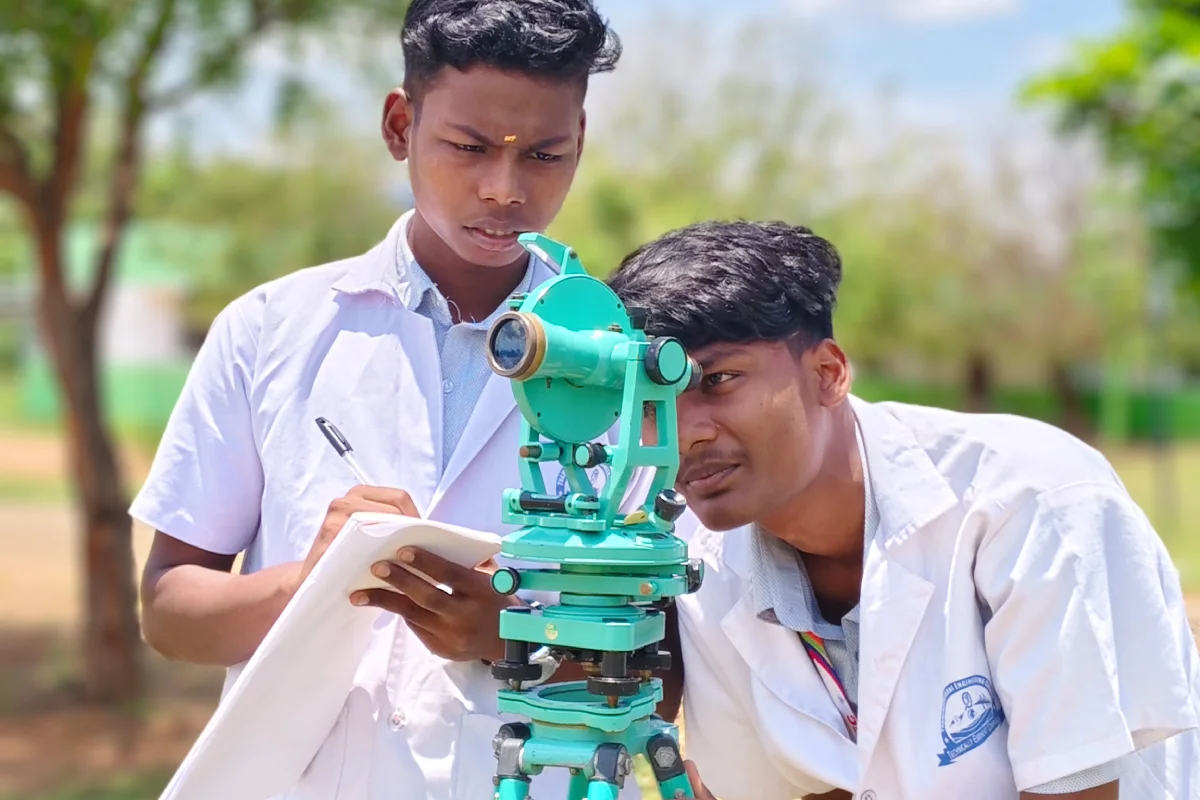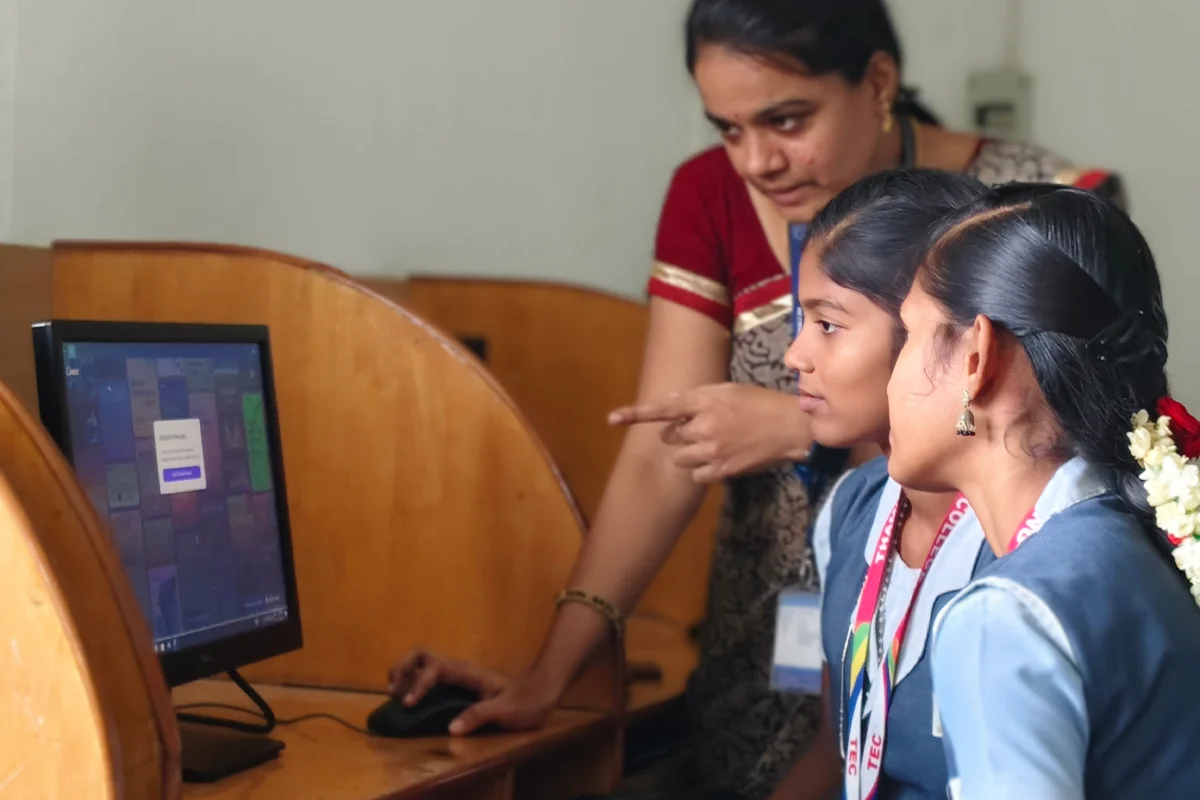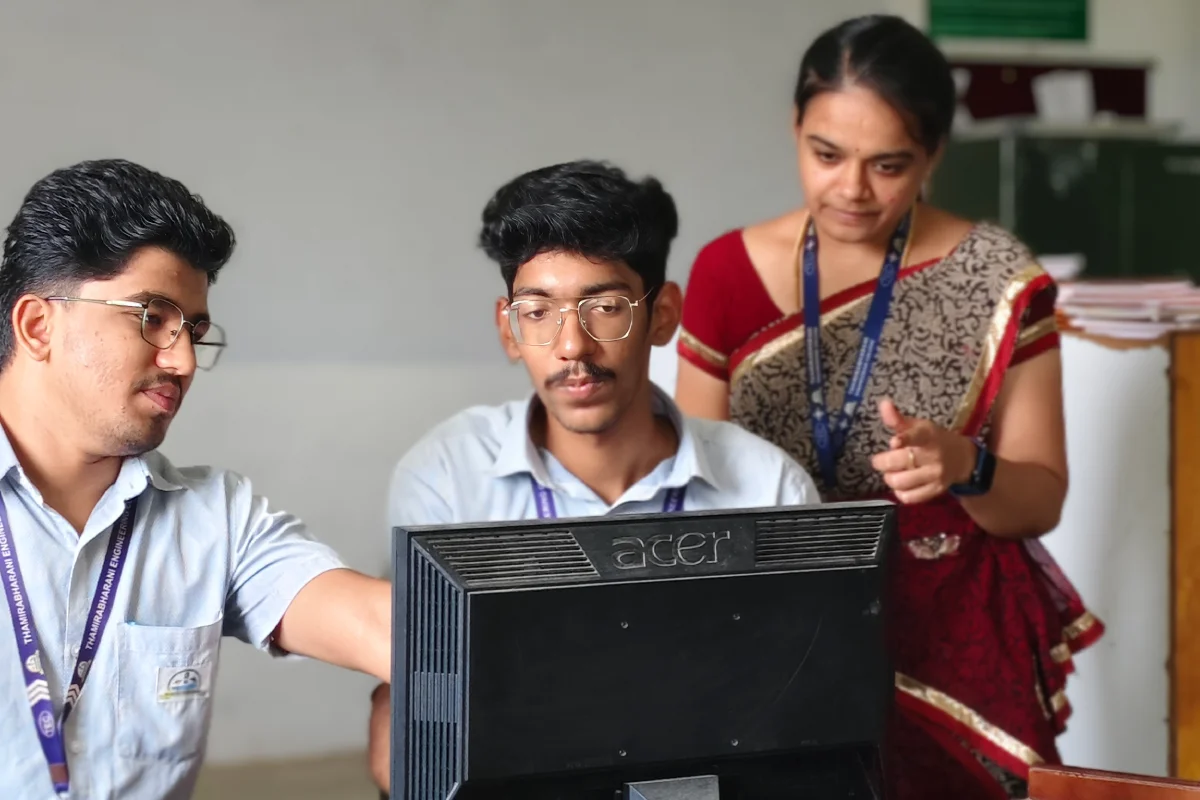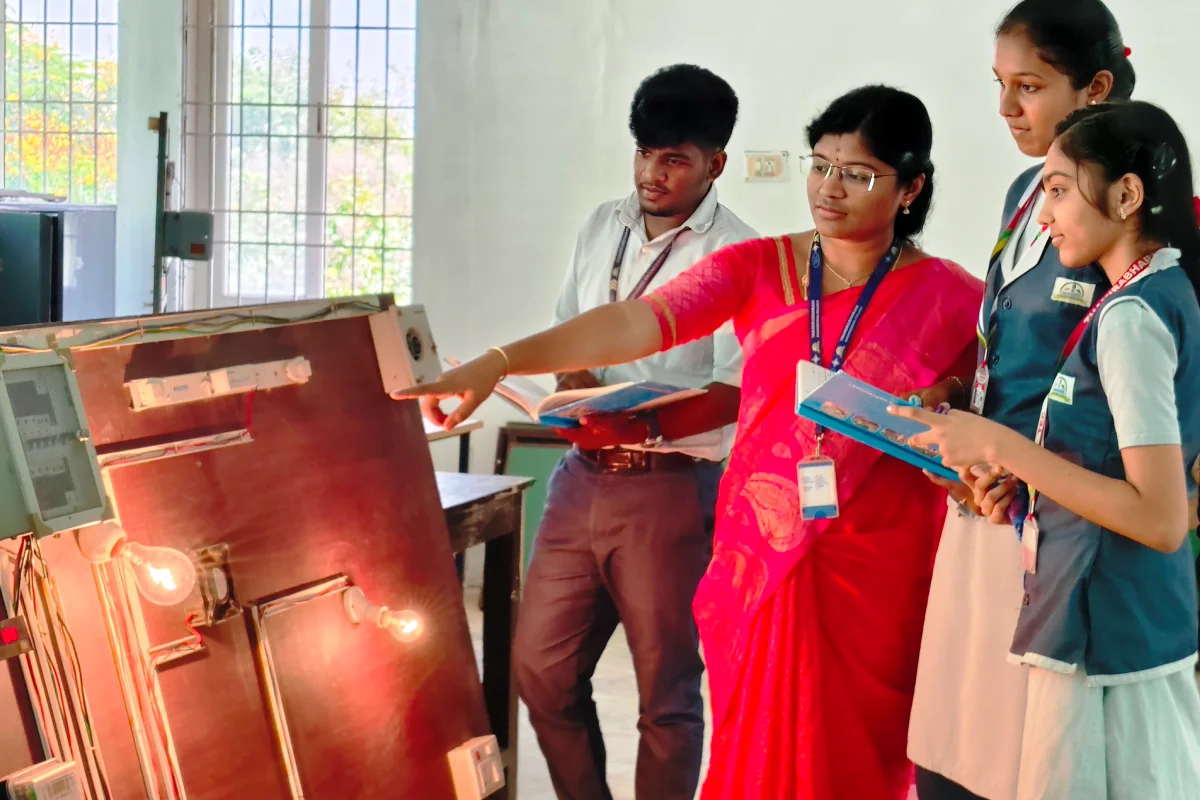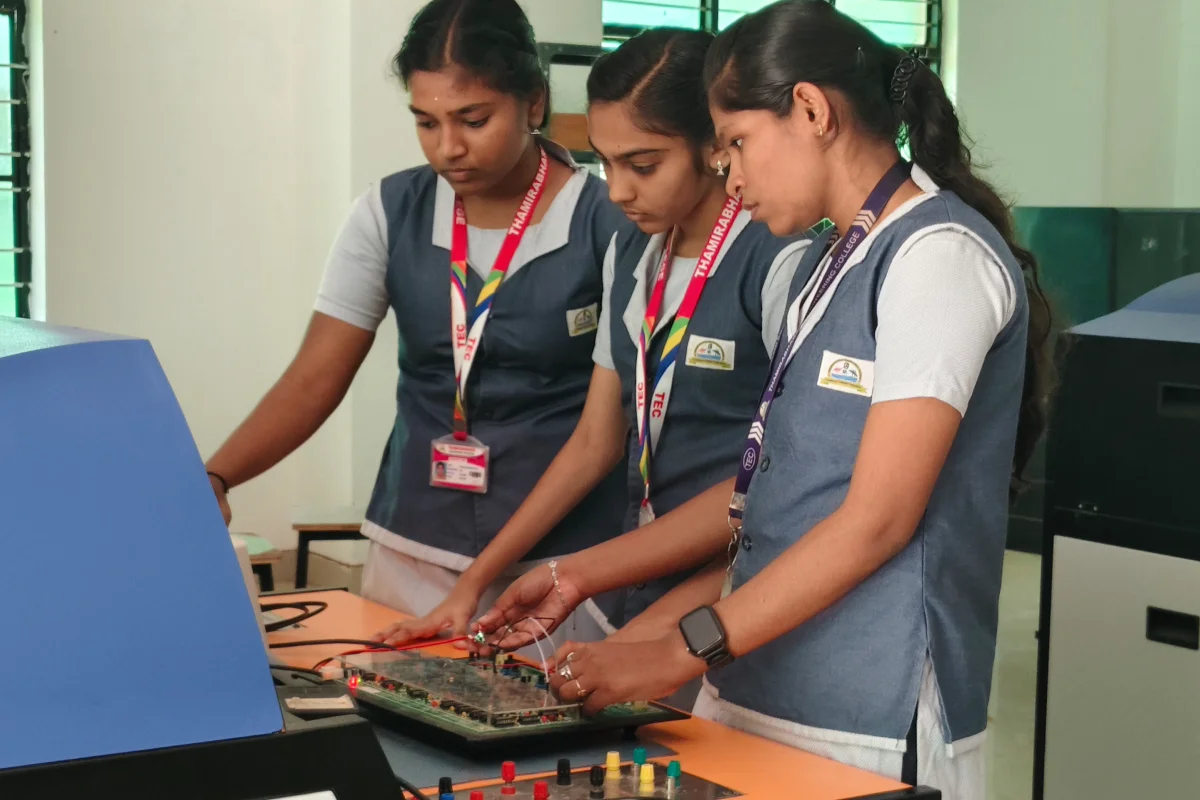About Department
The department of Mechanical Engineering was established in the year 2011. Our mission is to create a research hub engaged in contemporary research in association with industries and other reputed institutions, impart best-of-class education to students with up-to-date curriculum and content in tune with industry requirements and foster a spirit of entrepreneurship among students to enable a few launch their own ventures. The department has highly qualified and experienced faculty members. The department has the state of the art facilities for various laboratories, classrooms to support e-learning and department library. The department has a well equipped centralized workshop facility which caters to the needs of various departments. Guest lectures and industrial visits are periodically arranged for the students to supplement their curriculum. We strive for all round excellence in students, encouraging them in all extracurricular activities.
Department Vision
To be a premier center for producing competent mechanical engineers in meeting the ever changing demands of industry and society.
Department Mission
Imparting knowledge and skills in basic and allied areas of Mechanical Engineering through innovative learner-centered approach.
Collaborate with industries and research organizations in solving real world problems.
Creating avenues for the students to impart entrepreneurial desires.
Core Value
| Excellence as benchmark, Innovation, Collaborative Team work, Ethics in real life. | |
| Collaborative Team work | Ethics in real life |
Program Outcomes (POs)
| PO 1 | Engineering knowledge | Apply the knowledge of mathematics, science, engineering fundamentals, and engineering specialization to the solution of complex engineering problems in Mechanical Engineering |
| PO 2 | Problem analysis | Identify, formulate, review research literature, and analyze complex engineering problems reaching substantiated conclusions using first principles of mathematics, natural sciences, and engineering sciences. |
| PO 3 | Design/development of solutions | Design solutions for complex engineering problems and design system components or processes that meet the specified needs with appropriate consideration for the public health and safety, and the cultural, societal, and environmental considerations. |
| PO 4 | Conduct investigations of complex problems | Use research-based knowledge and research methods including design of experiments, analysis and interpretation of data, and synthesis of the information to provide valid conclusions. |
| PO 5 | Modern tool usage | Create, select, and apply appropriate techniques, resources, and modern engineering and computer aided tools including prediction and modeling to complex engineering activities with an understanding of the limitations. |
| PO 6 | The Engineer and Society | Apply reasoning informed by the contextual knowledge to assess societal, health, safety, legal and cultural issues and the consequent responsibilities relevant to the professional engineering practice. |
| PO 7 | Environment and sustainability | Understand the impact of the professional engineering solutions in societal and environmental contexts, and demonstrate the knowledge of, and need for sustainable development. |
| PO 8 | Ethics | Apply ethical principles and commit to professional ethics and responsibilities and norms of the Mechanical engineering practice. |
| PO 9 | Individual and team work | Function effectively as an individual, and as a member or leader in diverse teams, and in multidisciplinary settings. |
| PO 10 | Communication | Communicate effectively on complex engineering activities with the engineering community and with society at large, such as, being able to comprehend and write effective reports and design documentation, make effective presentations, and give and receive clear instructions. |
| PO 11 | Project management and finance | Demonstrate knowledge and understanding of the engineering and management principles and apply these to one’s own work, as a member and leader in a team, to manage projects and in multidisciplinary environments. |
| PO 12 | Life-long learning | Recognize the need for, and have the preparation and ability to engage in independent and life-long learning in the broadest context of technological change. |
Program educational objectives (PEO)
After few years of graduation our Electronics and Communication graduates are expected to
| PSO 1 | Apply the knowledge gained in Mechanical Engineering for design and development and manufacture of engineering systems. |
| PSO 2 | Apply the knowledge acquired to investigate research oriented problems in mechanical engineering with due consideration for environmental and social impacts. |
| PSO 3 | Use the engineering analysis and data management tools for effective management of multidisciplinary projects. |
Program Specific Outcomes (PSO)
On successful completion of the Mechanical Engineering Degree programme, the Graduates shall exhibit the following:
| PSO 1 | Design, develop and analyze electronic systems through application of relevant electronics, mathematics and engineering principles. |
| PSO 2 | Design, develop and analyze communication systems through application of fundamentals from communication principles, signal processing, and RF System Design & Electromagnetics. |
| PSO 3 | Adapt to emerging electronics and communication technologies and develop innovative solutions for existing and newer problems. |
Placement
Consistent placement record with top recruiters and support for higher studies.
Events
Workshops, hackathons, guest lectures, and national conferences are held regularly.
Facult Achievements
Specialized skills in artificial intelligence, data science, and software engineering.
Student Achievements
State-of-the-art labs, student achievements, and industry collaborations.
Newsletter
Consistent placement record with top recruiters and support for higher studies.
Fees and Structure
- Number of seats : 30
- Duration : 4 Years
- Fee : ₹ ₹ 45,000

